Lost in Translation: 19 Common Phrases We Utter Without Grasping Their True Meaning
Sometimes we say things all the time — without knowing what we’re really saying. You know that feeling when you toss out a saying, only to pause and think: Wait, what does that even mean?
So many of our everyday phrases are just little mysteries, passed down from who-knows-where, and we never really stop to question them. I don’t know about you, but I love finding out I’ve been getting something a little (or a lot) wrong for years.
It’s like a mini plot twist in the middle of a conversation! Today, we’re cracking open the stories behind 19 sayings we all use, totally unaware of their wild, weird, or surprising backstories.
Get ready to see your vocabulary in a whole new light—some of these might even make you rethink your next text or group chat. Language is wild, and I’m here for it.
1. Bite the Bullet

Ever wonder how tough soldiers handled surgery before anesthesia? They literally bit down on a bullet to cope with unbearable pain. That’s as hardcore as it gets—no numbing, just grit and teeth.
Today, when we say “bite the bullet,” we mean facing something unpleasant head-on—like finally opening that bill you’ve been dreading. But wow, the original meaning packs way more drama. Next time you’re bracing yourself for bad news or a dentist visit, remember: at least you’re not biting metal in a muddy camp!
Fun fact: This phrase doesn’t come from action movies but from real-life battlefield. Makes your Monday morning meeting look like a spa day, right?
2. Blood Is Thicker Than Water

You’ve probably said, “Blood is thicker than water,” thinking it means family first, always. But plot twist—the full original phrase flips the meaning completely. It actually goes, “The blood of the covenant is thicker than the water of the womb.”
Basically, it’s about the bonds you choose, not just the ones you’re born with. Those ride-or-die friendships? Sometimes they run deeper than any sibling drama. So if you’ve ever felt closer to your bestie than your cousin, you’re not alone.
Language loves a little irony. Next time someone tries to guilt-trip you with this phrase at Thanksgiving dinner, you can drop some historical truth and be the smartest person at the table.
3. Eat Humble Pie

Swallowing your pride after a major oops? Welcome to humble pie—except, trust me, it used to be way less metaphorical. In medieval England, “umble pie” was made from animal innards, the scraps left over for those not deemed fancy enough for real meat.
Imagine having to literally eat a pie made from organs just to show you’re sorry. Next time you apologize for a mess-up, be thankful the only thing you have to swallow is your ego.
Fun fact: ‘Umble’ comes from the French word for deer organs, not humility. But honestly, both would go down just as tough. Who knew an apology could be so… chewy?
4. Pull Out All the Stops

Giving it everything you’ve got? Time to pull out all the stops—literally. The phrase comes from pipe organs, those massive instruments that fill churches with sound. Pulling out the stops lets every pipe sing, making music grand and powerful.
So when you’re pulling out all the stops for your friend’s birthday party, you’re channeling organist energy. It’s about making things as loud, bold, and extra as possible.
Who knew your over-the-top party planning had musical roots? The next time your playlist is a little too loud, just claim you’re living out a centuries-old tradition.
5. Saved by the Bell

Most people think of boxing matches or ringing school bells, but this phrase’s creepy origin has Victorian drama written all over it. In the 18th century, people were terrified of being buried alive (honestly, same). Coffins were even fitted with bells and strings, just in case someone woke up underground.
“Saved by the bell” meant you could literally ring for help if you found yourself in a grave situation—yikes. Nowadays, it’s all about last-minute rescues, like your teacher ending class before you get called on.
Fun fact: Some historians debate if this is the true origin, but honestly, it’s too chilling not to share. Next time you escape something at the last second, give a little nod to your lucky stars—and maybe Victorian inventiveness.
6. Riding Shotgun
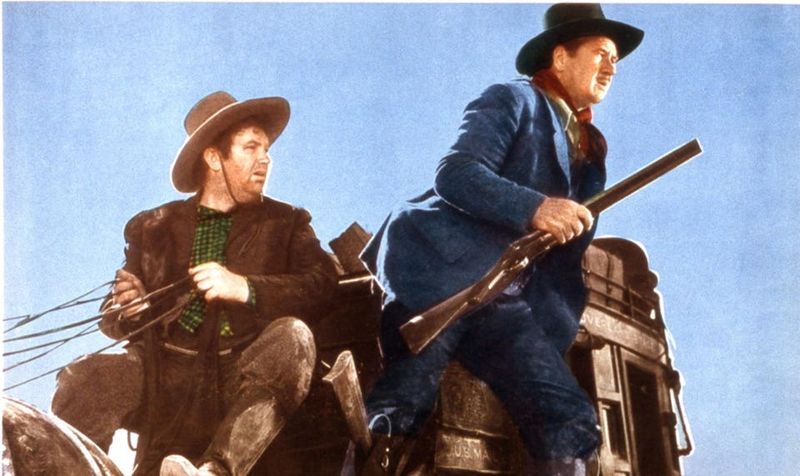
Calling “shotgun” on a road trip feels like winning a tiny lottery. But in the Wild West, riding shotgun was no game. The person sitting up front had a real shotgun—ready to fend off bandits and protect the stagecoach.
So, next time you squabble over the front seat, be grateful all you’re defending is your playlist, not someone’s gold. There’s something kind of badass about this tradition, even if today’s biggest danger is spilled coffee.
Fun fact: The phrase didn’t show up in print until the early 1900s, well after the actual Wild West. Still, yelling “shotgun!” feels like living your best outlaw fantasy—minus actual outlaws.
7. Cut to the Chase
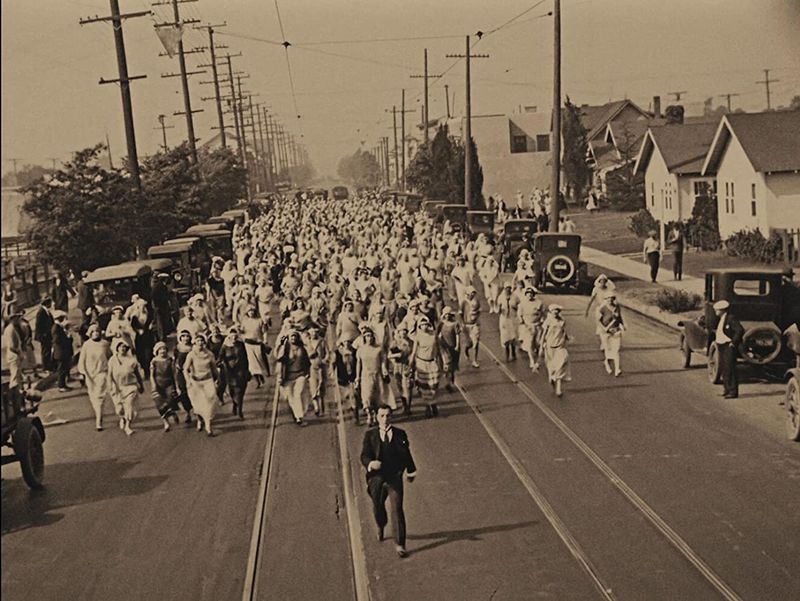
If you’ve ever zoned out during a slow story, you know the urge to cut to the chase. This saying is straight out of Hollywood’s golden age. In silent movies, the audience was just waiting for the thrilling chase scene.
Directors would trim the slow parts, getting right to the action. So, cutting to the chase literally meant skipping the boring stuff for what everyone wanted: excitement. Next time you beg your friend to get to the point, you’re channeling old-school movie magic.
Fun fact: The phrase first appeared in the 1920s. It’s proof that even back then, nobody had time for long-winded stories.
8. Caught Red-Handed
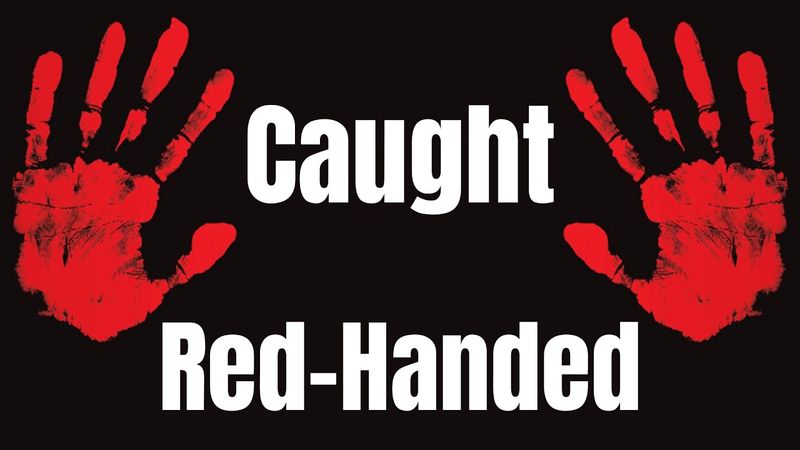
Being busted in the act feels rough, but getting caught red-handed used to mean something way bloodier. Originally, it referred to being caught with fresh blood on your hands after poaching or stealing livestock.
It wasn’t just about being guilty—you had visible proof smeared all over you. If only modern mistakes were that obvious! These days, it’s more about getting caught mid-lie or with your hand in the cookie jar.
Next time you mess up and can’t hide it, remember: at least you’re not facing medieval justice. But maybe wipe your hands, just in case.
9. Let the Cat Out of the Bag

Spilling secrets can be dramatic, but imagine accidentally freeing a cat in the middle of a market. This phrase comes from shady merchants who would swap a piglet for a cat in a bag. If someone let the cat out, the scam was up.
Now, letting the cat out of the bag means revealing a secret or letting something slip prematurely. It’s a little less chaotic, but still embarrassing if you’re the one who spills.
Fun fact: Cats everywhere probably wish this phrase was about something else. But hey, at least it’s not “let the pig out of the bag”—that just sounds wrong.
10. Kick the Bucket
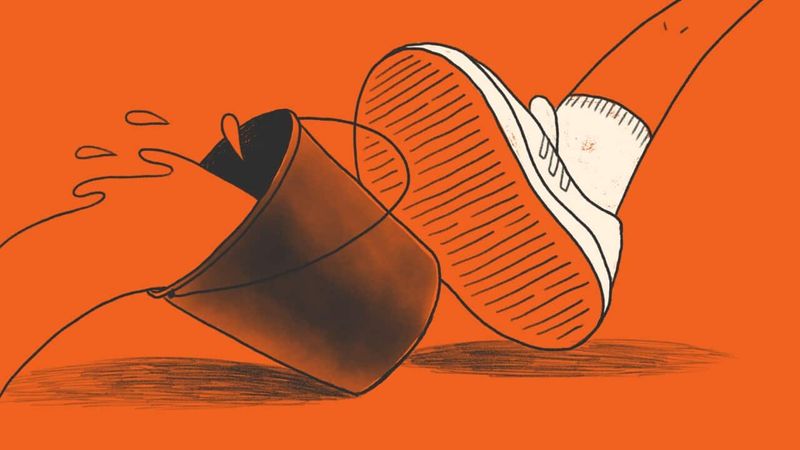
Okay, here’s one with a seriously dark twist. People use “kick the bucket” to mean passing away, but its roots are way grimmer. One theory says it comes from a method where someone would stand on a bucket and kick it away—well, you get the picture.
It’s unsettling, for sure. But these days, we use it so casually, like when describing a goldfish funeral or a favorite pair of jeans giving out.
Language sure has a way of softening tough realities. Just remember, behind every casual saying, there’s probably a story that makes you go, “Wait, what?!”
11. Run of the Mill

Ever describe something as ordinary or nothing special? That’s run of the mill for you. The phrase comes from the days when factories churned out products nonstop, straight from the machinery before any custom finishing.
It’s a reminder that not everything needs to be spectacular—sometimes, good ol’ regular is just fine. Think of it as the plain bagel of the language world: dependable, no frills, always there when you need it.
Fun fact: The term was first used in textile mills, but now it covers everything from your go-to jeans to a basic cup of coffee. There’s comfort in the everyday, and that’s totally okay.
12. Mad as a Hatter
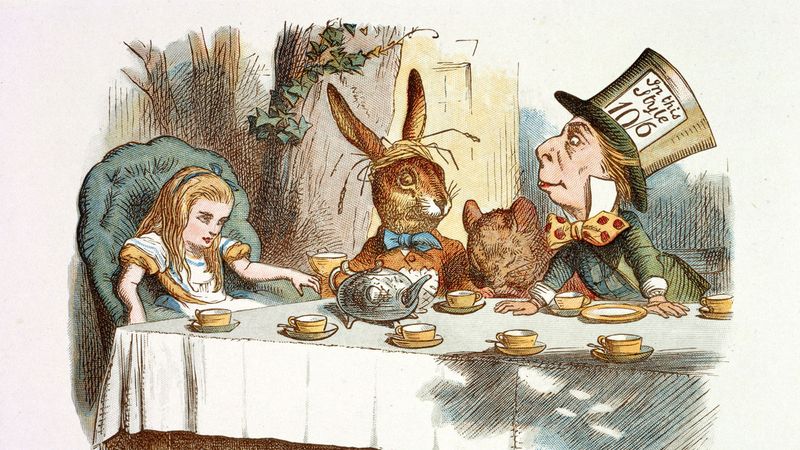
Ever met someone who seems just a bit… off? Calling them mad as a hatter is oddly specific. In the 1800s, hat makers used mercury in the felt-making process. The fumes messed with their brains—tremors, confusion, even hallucinations.
So, the phrase isn’t just a jab at eccentric fashion sense. It’s rooted in real health struggles, though now we use it with a lot more whimsy, thanks to Alice in Wonderland.
Fun fact: Lewis Carroll’s Mad Hatter wasn’t actually mad—just a little misunderstood. Mercury poisoning is no joke, but the phrase has taken on a life of its own.
13. Turn a Blind Eye

Ignoring something on purpose? That’s classic “turn a blind eye.” We owe this one to Admiral Nelson, who famously put his telescope to his blind eye during battle to pretend he didn’t see a retreat order.
Now, it’s all about selective vision—choosing not to see what’s inconvenient. It’s a little sassy, honestly. Sometimes you just don’t want to deal, and language has your back.
Fun fact: Nelson was actually a war hero. Selective hearing, selective seeing—it’s all part of surviving family gatherings, right?
14. Go the Whole Nine Yards

Giving it everything you’ve got? That’s the whole nine yards. Some say it’s about fighter planes in WWII: if you used up all nine yards of ammo, you’d truly given it your all.
Nobody’s sure which theory is right—there are wild guesses involving fabric, sports, and cement trucks. But the idea is putting everything you have on the line, leaving nothing behind.
Fun fact: The exact origin is still a mystery, but the meaning is universal. Next time you’re all in, you’re basically channeling vintage pilot vibes.
15. Steal My Thunder
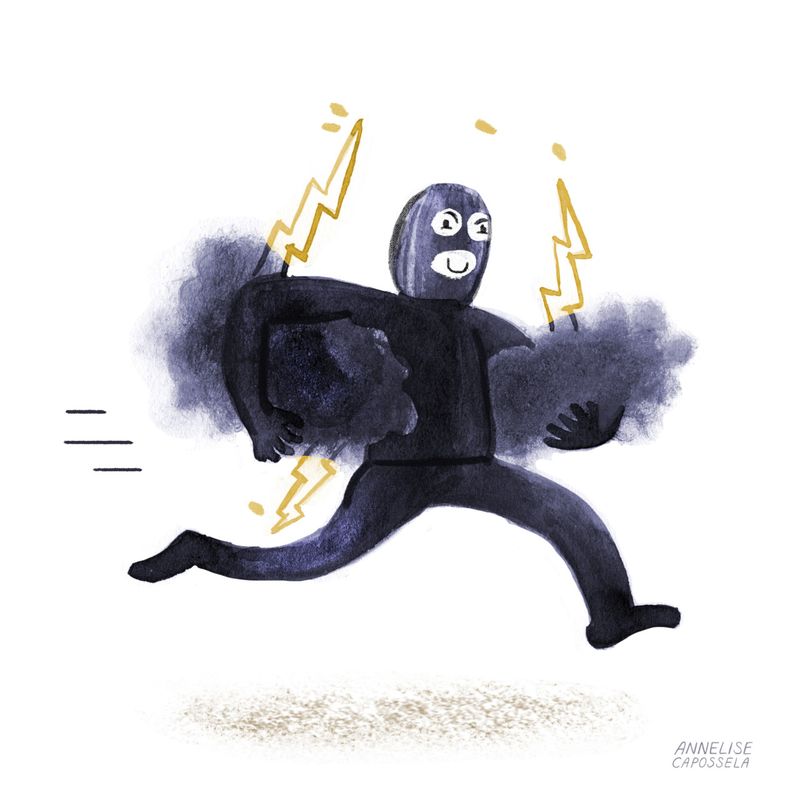
Having your moment totally hijacked? That’s someone stealing your thunder. The phrase comes from a playwright whose special thunder sound effect was copied by another theatre. The drama!
Now, it’s about losing your spotlight, whether it’s your birthday or a big announcement. There’s something so relatable about wanting your credit—especially if you worked hard for it.
Fun fact: The guy who invented the thunder effect was named John Dennis. He was so mad, he basically invented the phrase too. That’s legacy, even if it’s a little stormy.
16. Rule of Thumb
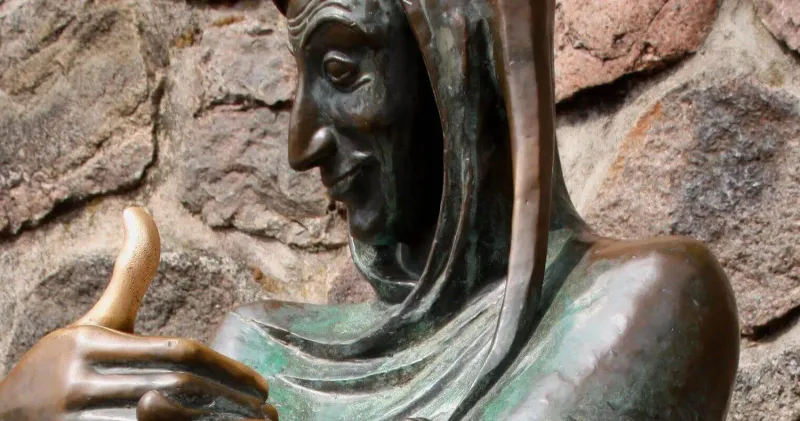
Giving rough advice or a general guideline? That’s the rule of thumb. The story goes that a husband could beat his wife with a stick no thicker than his thumb—yikes. Thankfully, there’s no proof this law ever existed, but the rumor stuck.
These days, it’s just about estimates, not awful old laws. Still, the phrase’s backstory is a reminder that language has some cringe-worthy skeletons.
Fun fact: Carpentry had its own rule of thumb too, using the thumb for quick measurements. So, not all the origins are shady—just some.
17. Throw in the Towel
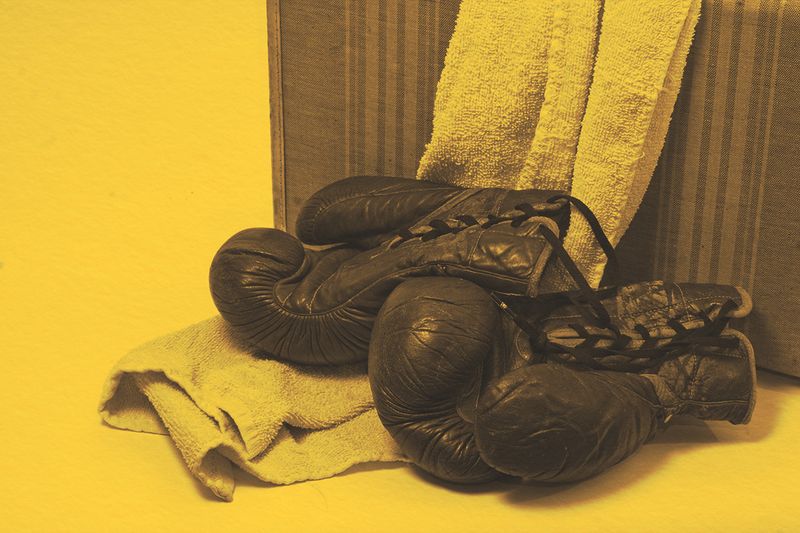
Ever felt so done you just want to give up? In boxing, “throwing in the towel” meant surrendering to protect the fighter. The literal act was dramatic—a towel tossed to signal enough’s enough.
Now, it’s a go-to for quitting anything, from awkward dates to impossible work projects. There’s no shame in knowing when to call it quits and save yourself a mess.
Fun fact: Before towels, trainers waved sponges. Towel or not, it’s all about knowing your limits and not being afraid to step back.
18. White Elephant
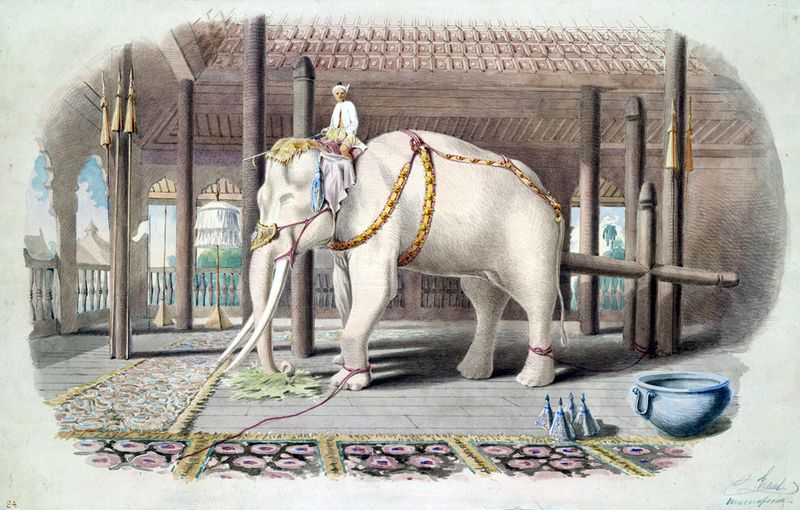
Ever get a gift so useless you have no idea what to do with it? That’s a white elephant—straight from the royal courts of Southeast Asia. White elephants were sacred, but so expensive to care for, owning one could ruin you financially.
Giving someone a white elephant was the ultimate passive-aggressive move. Now, it just means a gift exchange full of silly, impractical stuff.
Fun fact: Real white elephants aren’t actually white, just super pale. Either way, nobody wants one as a holiday present.
19. Passed with Flying Colors

Acing something so thoroughly everyone notices? You’ve passed with flying colors. The phrase comes from victorious ships returning to port with their flags high, advertising a win.
Today, it’s about success with flair—whether it’s a tough exam or a tricky presentation. There’s just something extra satisfying about showing your achievement for all the world to see.
Fun fact: The colors weren’t just for show—they told everyone exactly who you were and what you’d done. If only report cards came with banners.







